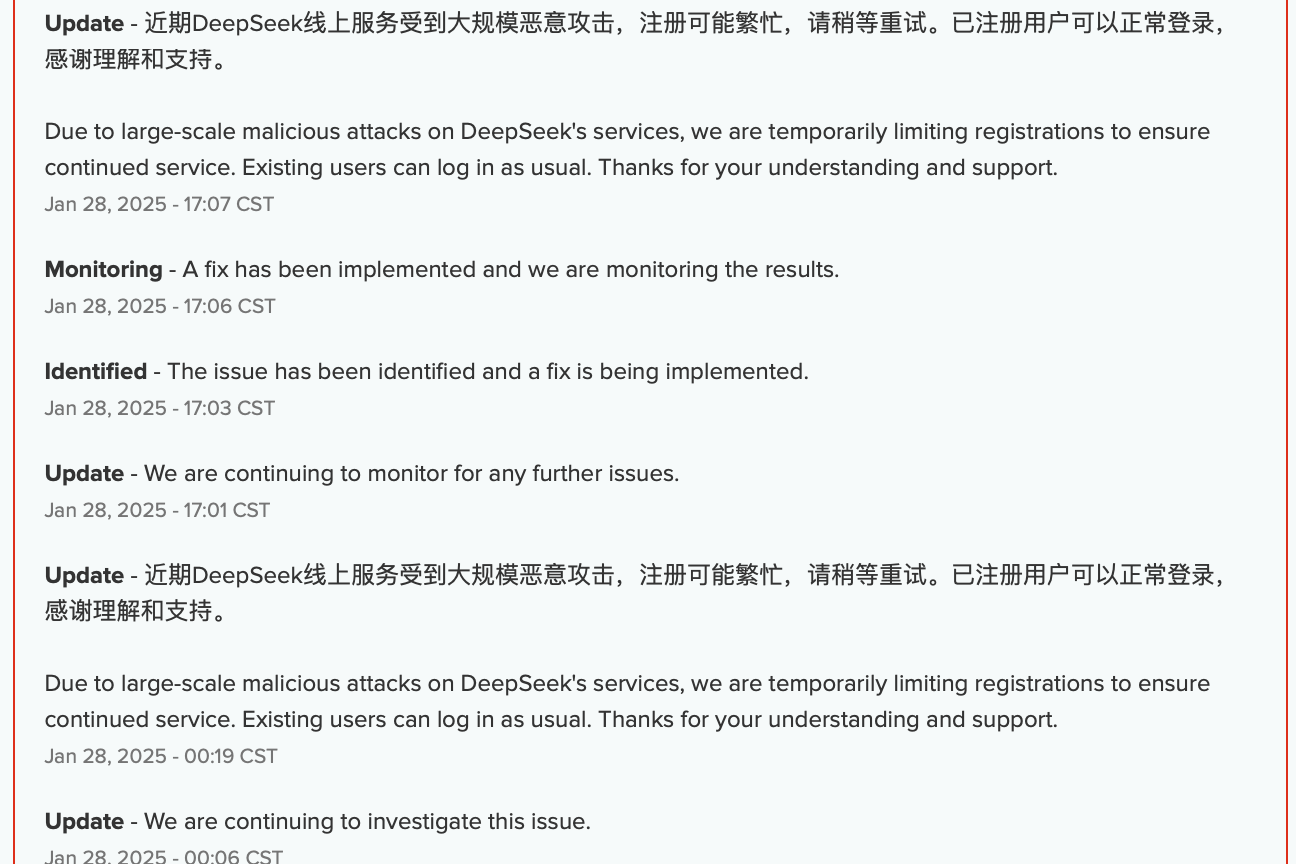A massive cyberattack that forced DeepSeek to close its groundbreaking AI model for new registrations on Tuesday originated in the US, Chinese state media has claimed.
The Chinese startup released its new AI system, called R1, last week and the development immediately rocked the Western tech industry and stock markets.
DeepSeek claims its AI model cost a fraction of the money and computing power to train compared to its rivals like OpenAI’s ChatGPT, which employs more expensive Nvidia chips.
R1 quickly gained popularity, climbing to the top of the list of free apps downloaded from Apple Store, surpassing ChatGPT.
As news spread over the weekend that the DeepSeek system matched the most advanced AI models of American tech giants such as Google, OpenAI and Meta despite being far more cost-effective and open-source, investors in companies such as Nvidia and Oracle began selling their stocks, wiping off nearly a trillion dollars in value from the American stock market on Monday.
Nvidia is the leading supplier of chips used to train advanced AI models.
On Tuesday, DeepSeek said that it came under a brute-force cyberattack.
The company limited R1 signups with phone numbers in China and prohibited registrations from international users.
A banner on its app notified users that it faced “malicious attacks” without revealing where they were coming from.

“Due to large-scale malicious attacks on DeepSeek's services, we are temporarily limiting registrations to ensure continued service,” the notification said. “Existing users can log in as usual. Thanks for your understanding and support.”
On Wednesday, DeepSeek notified users that the issue had been identified, and a fix was being implemented.
Not long after, Yuyuan Tantian, a social media account affiliated with Chinese state broadcaster CCTV, claimed the attacks originated from IP addresses in the US.
While initial attacks disrupted DeepSeek by overwhelming its servers and bandwidth with a flood of internet traffic, according to the Chinese cybersecurity company QAX Technology Group, the more recent ones attempted to crack user credentials by checking all possible password combinations to understand how the AI model worked.
“All the attack IPs were recorded, all are from the US,” QAX cybersecurity expert Wang Hui told CCTV.
The cyberattack on DeepSeek has raised concerns about the security of AI platforms and the risks they pose to users.
Bill Conner, former security adviser to American and British governments, said DeepSeek “represents a clear risk to any enterprise whose leadership values data privacy, security and transparency”.
US president Donald Trump warned that DeepSeek’s emergence was a “wake-up call” for American AI giants.
Some AI experts have also raised concerns about DeepSeek’s ties to the Chinese government.
The controlling shareholder of the startup based in Hangzhou is Liang Wenfeng, co-founder of a quantitative hedge fund called High-Flyer. Mr Liang attended a symposium for businessmen and experts hosted by Chinese premier Li Qiang the day the new DeepSeek model was released, according to state news agency Xinhua.







